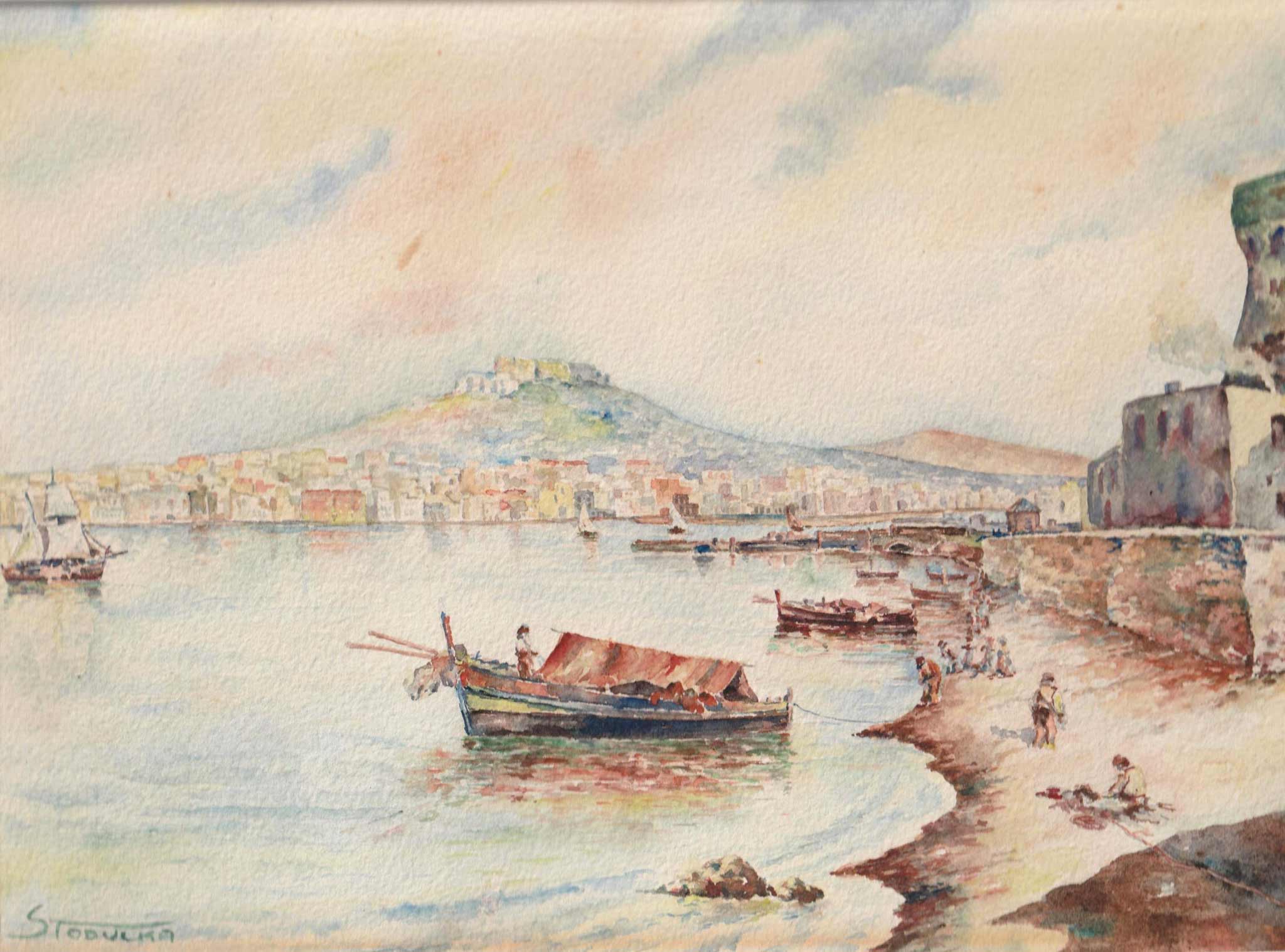Z
d
e
n
y
Portfolio of
Zdeny Stodulka
Artist
Zdeny was born in Czechoslovakia in 1920, moving to Sydney, Australia in 1949. A tradional landscape painter and member of the Parramatta Art Society who exhibited throughout Sydney.
Retiring to Quensland until his passing in 2009, Zdeny's large body of work is still circulating today. ZdenyStodulka.com is dedicated to honouring his life, artworks, and legacy.
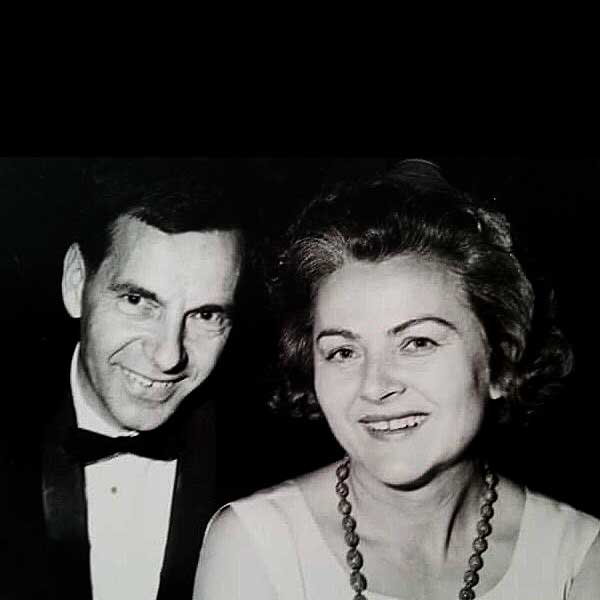
portfolio
A selection of Artworks
Naples - words from a collector
Nice to hear from you!
have attached a picture of the watercolour in its frame and a scan, so that you can see the colours more clearly. If you zoom in, the detail is amazing. It is not a big painting; about 27 x 20 cm but it is still in good condition, although the paper on which he painted it has become a little yellow over the years. I bought it online from an elderly man in Rotterdam, who is trying to sell his art collection. Unfortunately, he doesn’t have any more pieces made by your dad. The frame it was in when I bought it was professionally done and had a sticker on the back from an art dealer, “Kunsthandel S. Bonte Encadrementen” in Leiden. That is about all I can tell you about it, unfortunately, but I thought it would be nice for you to see it.
have looked at the site you made for your dad; what an amazing story and a fine way to honour his life and legacy. What a skilled and talented artist he was. I have ordered your book: Life is… and look forward to reading your work and seeing more of your dad’s paintings. Take care!
Best wishes,
Audrey
About Zdeny
About Zdeny Stodulka
Zdeny (also known as Zdena and Zdenek) Stodulka was an artist who emigrated from Czechoslovakia to Australia in 1949 after a two year stint in a UN displaced persons camp in Naples for post war refugees with his wife and baby son. He went on to paint thousands of paintings for over half the 20th Century exhibiting widely in Parramatta, the Hills District, Sydney and Canberra with two successful 50th and 55th Art retrospectives, held in the Marist Brothers school in Canberra in 1995 and the Czech Club in Queanbeyan in 2000.
It is easy to be enthralled by one man’s skills, passion and love for the Australian bush, its wildflowers, its culture and psyche seen through the eyes of the artist. His versatility extended to so many aspects of this culture, ranging from bushfires, the harbour, its oceans and annual yacht races, its indigenous culture, the extremes of weather and the seasons.
Who was this amazing artist smuggled from communist Czechoslovakia after living in Germany during the war, walking half way across Europe with his young wife and living through tough refugee camp conditions in both Europe and Australia before making a home in Parramatta for his young family?
For Zdeny, the arrival in Australia, after the upheaval and turmoil of war-torn Europe meant a new beginning. His first two years in his adopted homeland were spent with his family in the Bathurst migrant hostel-a great improvement on the shocking conditions they experienced earlier in the Naple’s camp. Despite the deprivation in Naples, Zdeny found ways in which to paint a little; mainly watercolours on any materials he could find, often just bits of discarded paper and wood depicting Mediterranean and Austrian mountain scenes.
Even in difficult times there was a ready market for his work. He was influenced by the rich, yet subtle colours of the Mediterranean, and the variety and colour of the Australian landscape, which were all to have an enormous impact on his early and later work. During the Bathurst years he was sent to Canberra, Melbourne and Sydney by the Good Neighbour Council, to promote Art and Culture representative of Eastern Europe. He was called upon to support the Council again in the 60s, while living in Parramatta.
The fifties brought not only economic difficulties for a young struggling artist in an unfamiliar environment, but also an inner challenge of adapting to city life. He could not relinquish his love of nature, no matter how much urban living was to encroach on his young family’s existence. Forever the romantic and lover of the peace and solitude of the bush, Zdeny found inspiration in the historic bushland surrounding Lake Parramatta, only a stone’s throw from where he lived. Zdeny loved and was inspired by the history provided by old Parramatta’s street scapes and tried hard to reconcile these with the modern architecture that was leaving its sometimes ugly mark throughout the sixties. He had a permanent exhibition in Parramatta’s Commonwealth Bank with paintings representing its colonial and early years, including its cathedrals, Old Government House, Parramatta Park, George Street, Church Street, Lennox Bridge, the Town Hall, the Old Kings School, Parramatta River, Rocky Hall and the Pye family homesteads.
His exhibitions in Parramatta during those early years included a diverse range of modern art as well as more traditional styles, mostly oils and some watercolours. The subjects were of Parramatta’s historic buildings, seascapes and still lifes. He was in demand as a painter of murals, not only in Sydney’s departments stores but also in ball rooms, restaurants and coffee shops, depicting Parisian, Mediterranean and Oriental scenes.
He was a guest art teacher at the Parramatta Art Society and won the 1963 Parramatta City Council Heritage Art Award.
From 1963, for over 12 years Zdeny painted and designed on a large scale for ATN 7, which gave him excellent opportunities for expressing his flair and versatility. This was an environment he was very much at home, as it was in the theatre where as a teenager he had started his painting career in Czechoslovakia. He loved the scope and variety of subjects and sheer scale of painting in such huge dimensions.
He could not resist another period of abstract expression, but instead of the bright colours of his earlier modern art he concentrated on two colours, black and white and black and grey. He also painted large numbers of wild and stormy bush fire scenes and Sydney Harbour yacht races, also often in two colours.
His audience was increasingly interested in Australiana and his Australian wild flowers and country scenes were in great demand, not only in galleries across Sydney but at the many Spring and Summer School and Charity fund raiser exhibitions which were a Sydney feature for decades. His wildflowers and country landscapes were also very popular amongst overseas visitors and many of his works are in galleries across the world.
Again at one with Nature, he created paintings which reflected his enduring passion for the bush. His love of beauty found expression in detailed cloud formations, something he attributed to Michelangelo’s influence from an early age. He also acknowledges the influence of the Australian impressionists and the great English artists Turner and Constable. However, he would also add, that nothing influenced him as much as nature itself.
It was a most unusual mix to see on the one hand his black and white abstracts along side his detailed and accurate true to life portrayal of the wildflower series.
Ill health was increasingly a major influence on his life and his art in his 50s. For over thirty years he suffered from depression, though during his periods in remission he would paint extensively. He was able to continue painting Australian landscapes and wildflowers for an extensive audience in the Sydney and Canberra community into his 80s and was able to produce major large works depicting Australian wild flowers often painted on fibreglass.
Not only had he used bits of paper and wood to paint on in Naples after the war, due to sheer necessity because of a shortage of materials, but he continued to use a wide range of materials, both to paint on and with which to apply the paint, be it brushes, palette knives, bits of string or old brooms throughout almost 60 years of painting.
Perhaps coincidentally or influenced by Van Gogh his last signature series of paintings was of Sunflowers. In his late 70s he was increasingly painting flowers of his childhood, in particular, poppies, daisies and sunflowers.
feedback
Australian Wildflowers
Zendy's Son Tom Stodulka recetly received an original painting of Australian Wildflowers from some friends in Melbourne. Below is a sample of comments on this painting.
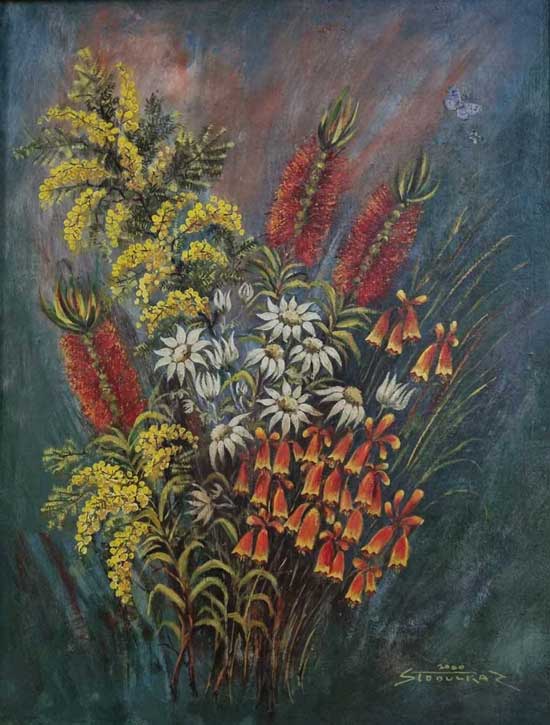
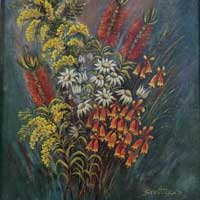
What a beautiful painting.
Shirley Mallett

Nice, Tom.
Julian Barry

Lovely painting.
Don Dawson

It’s beautiful
Donna Juanita

Love it.
Steven Mitchell

Your Dad was an amazing artist.
Jen Compton

Beautiful.
Sally Eberhardt

Incredible.
Erika Myer

So much creative talent in the family. Beautiful painting.
Margot Perkins

Wonderful Tom.
Mike Emerson

And that’s magic.
Linda Henderson

What a beautiful painting.
Shirley Mallett

Yes it is beautiful-I have one of his paintings.
Sieglinde Huettner

That’s beautiful.
Senlie Tong

Beautiful work.
Roger Scanlan

Wow your father was talented.
Peter Anthony Hohnen
Paint in Print
Published Works
-
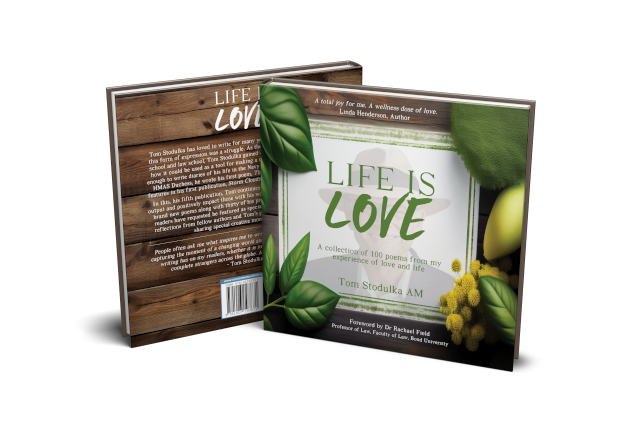
Have your own prints in published books by Zdeny Stodulka's Son - Tom Stodulka AM.
Tom Stodulka - Author and son of Zdeny Stodulka is an avid collector of his father's work, and an accomplished poetic artist in his own right. Tom's passion for poetry combines with his collections in a growing library of publications throughout his books, making the perfect coffee table book or gift.
Check them out now, at TomStodulkaAuthor.com.
